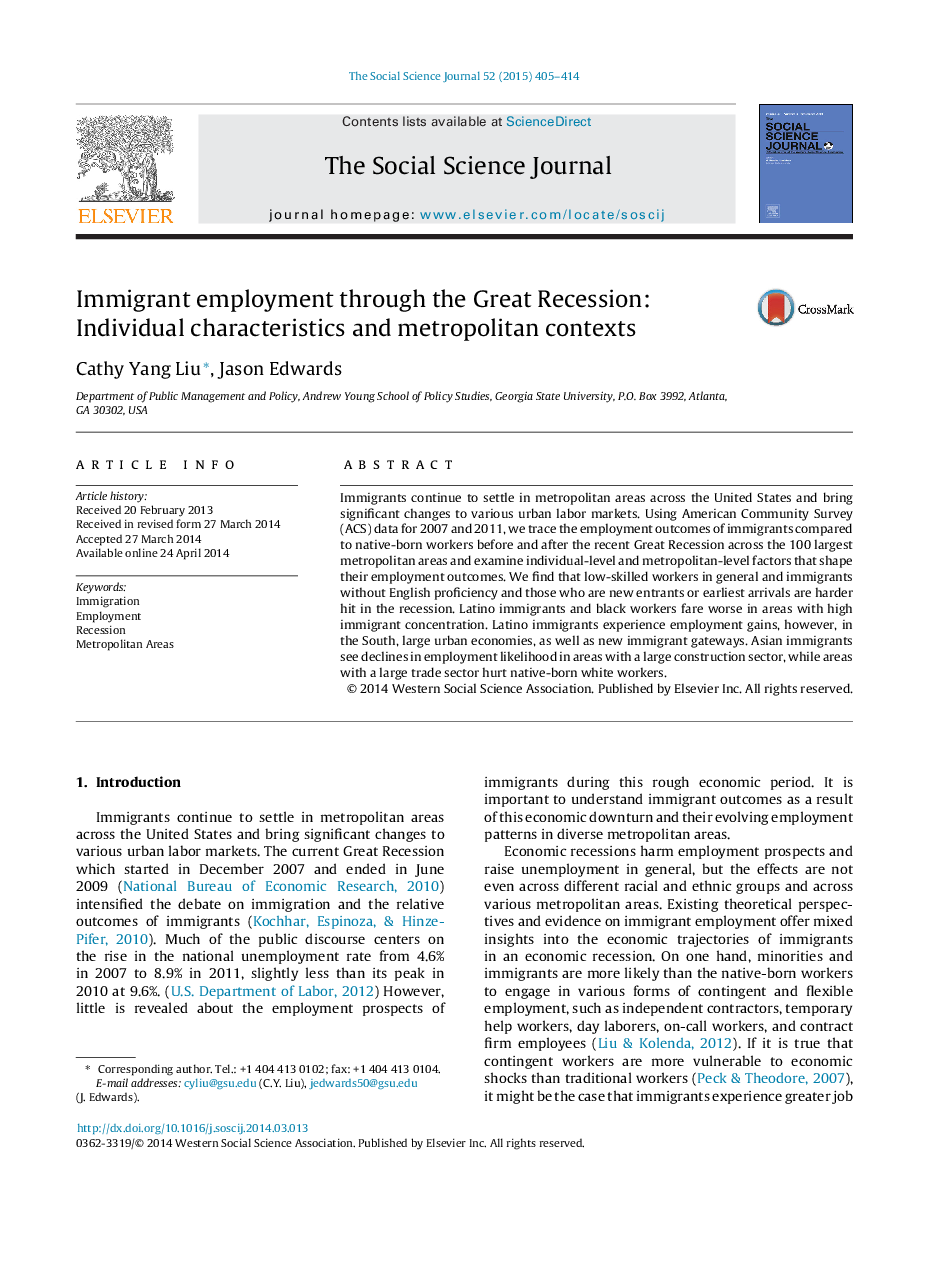| Article ID | Journal | Published Year | Pages | File Type |
|---|---|---|---|---|
| 140133 | The Social Science Journal | 2015 | 10 Pages |
•Used American Community Survey microdata before and after the recent recession.•Immigrant growth slowed down during the recession compared to previous years.•Latino and low-skilled immigrants saw the highest rise in unemployment rate.•Employment varies across metropolitan areas by region, economy, and immigration.•Employment varies by racial/ethnic group, gender, skill, cohort, and mobility.
Immigrants continue to settle in metropolitan areas across the United States and bring significant changes to various urban labor markets. Using American Community Survey (ACS) data for 2007 and 2011, we trace the employment outcomes of immigrants compared to native-born workers before and after the recent Great Recession across the 100 largest metropolitan areas and examine individual-level and metropolitan-level factors that shape their employment outcomes. We find that low-skilled workers in general and immigrants without English proficiency and those who are new entrants or earliest arrivals are harder hit in the recession. Latino immigrants and black workers fare worse in areas with high immigrant concentration. Latino immigrants experience employment gains, however, in the South, large urban economies, as well as new immigrant gateways. Asian immigrants see declines in employment likelihood in areas with a large construction sector, while areas with a large trade sector hurt native-born white workers.
